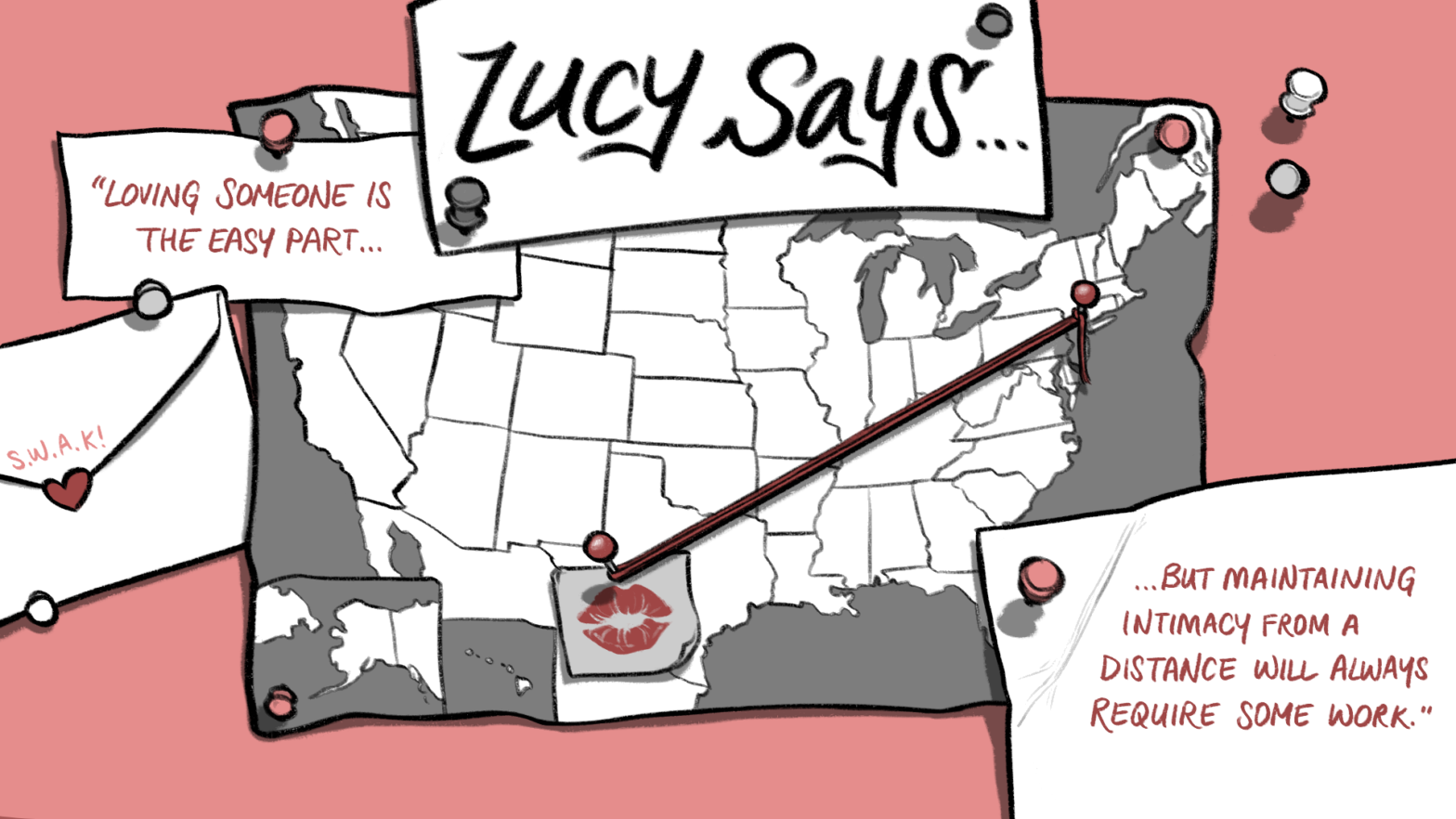Love, Lucy is the New School Free Press’ weekly advice column, where writers anonymously share thoughtfully researched solutions to your questions about life. Send submissions through Love, Lucy’s official Google Form, and you might hear back from Lucy herself.
Dear Lucy,
When I’m at school, I’m away from my boyfriend. How do I make time for my long-distance relationship?
From,
Long Distance Lover
Dear Long Distance Lover,
Most people may enter this conversation harshly because we are still in the early stages of our life. For college students, it’s easy to opt out of the idea of continuing a serious relationship, especially one where you are separated. However, the heart wants what it wants. Unfortunately, what it wants might be 500+ miles away, and time zone differences may complicate your relationship even more. As a person currently in a serious long-distance relationship, I understand your struggle. Loving someone is easy, but maintaining intimacy from a distance will always require some work.
Getting used to long distances in the beginning will always be hard. Your schedules are probably all over the place in the first month or so. Maybe your partner will surprise call you during class, and won’t be able to call again until 10 p.m. their time, but that might be midnight your time, and you have a morning class. Maybe you’ll send them a message in the morning, and won’t hear back until 6 p.m. The growing pains in a long-distance relationship make everyone’s opinions of what could go wrong seem real, but that doesn’t always mean they are.
When I had this issue, I sat down with my partner via FaceTime to determine what was going wrong. We figured out that we didn’t have the luxury of being able to sense each other’s schedule because we weren’t physically around each other anymore. At this point, we didn’t even know each other’s school schedules.
We decided to send each other our schedules, so we knew when we could and couldn’t bother each other. This helped us figure out which blocks of time we may have free during the day for a phone call check-in between classes or a way to avoid the assumption that the other is ignoring your text message. Many preventable fights occur because of both partners’ anxious assumptions, but knowing what each other’s day-to-day life looks like can help ease these tensions. Doing this can also help you set up possible dates to visit each other, which you can both look forward to in the future.
According to a survey by the International Association for Relationship Research, couples in long-distance relationships reported greater satisfaction by having frequent text message conversations.
Make a routine of texting each other “good morning” and “good night,” and drop the shame of the “double text” because sometimes, you’ll simply just have to. You both have your own lives in your cities, states, or countries, and sometimes a text won’t be seen, but the oversight won’t be intentional.
Spending quality time together is also important despite not being physically in the same room. You can do this by scheduling one day a week and devoting a chunk of time to date nights via FaceTime.
Long-distance date nights can be whatever you both enjoy. My partner and I would binge “Love is Blind” together through Netflix Party (now Teleparty), DoorDash each other surprise dinners, do an online game night, or just talk until we both fell asleep. If you had an especially hard or busy week, you could, at the very least, rely on that day to vent or unwind with each other.
And finally, the key to a long-distance relationship, as uncomfortable as it may be, is blatant honesty and direct communication. Tell your partner if you are not in the mood to call or if you need to reschedule your once-a-week date nights. Tell them if something they said bothered you because they don’t have the privilege of picking up on on social cues in person.
It’s easy to fall into the trap of what others may tell you. You may feel alone in this, but according to research by the American Counseling Association, as many as 75% of college students have been in a long-distance relationship. And according to another study featured in the New York Post, 60% of long-distance relationships are successful. You and your partner aren’t the only ones going through this, so lean on others around you and ask for tips from other long-distance couples.
Remember that long-distance relationships are like any other relationship; they require time, patience, and care. You both deserve to feel loved and appreciated, and hopefully, these little adjustments can help you move forward in big ways.
Love,
Lucy








Leave a Reply